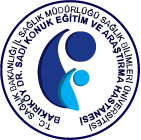ABSTRACT
Objective:
To evaluate maternal-fetal outcomes of the pregnancies complicated by intrahepatic cholestasis and to discuss the pregnancy management.
Material and Methods:
Medical records of 33 patients diagnosed as intrahepatic cholestasis of pregnancy between January 2006 and December 2009 were retrospectively evaluated in this study.
Results:
The mean age, gestational age, exposure time, the gestational age on delivery time of 33 patients (31 single & 2 twin pregnancies) followed at Perinatology Clinic were 26±5.48 years, 34.4±3.5 weeks, 24.2±19.4 days, 36.1±3.1 weeks, respectively. Sixteen patients (48.5%) delivered with cesarean section. Among these patients, cesarean delivery was performed with a diagnosis of fetal distress in 6 patients (37.5%) and 3 of these neonates were followed at neonatal intensive care unit (NICU). The mean birth weight was 2788.6±609.3 gr and the admission rate of NICU was 77.7% with a diagnosis of prematurity in 9 patients (27.3%). Apgar scores were lower than 7 in 8 patients (24%) at 1 minute and lower than 7 in 4 patients (12%) at 5 minutes, no stillbirths were determined.
Conclusion:
Intrahepatic cholestasis of pregnancy is important with its fetal risks rather than maternal effects. Treatment and pregnancy management should be planned due to patient’s condition with close antenatal fetal and maternal monitoring.



